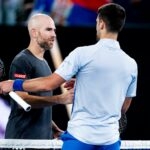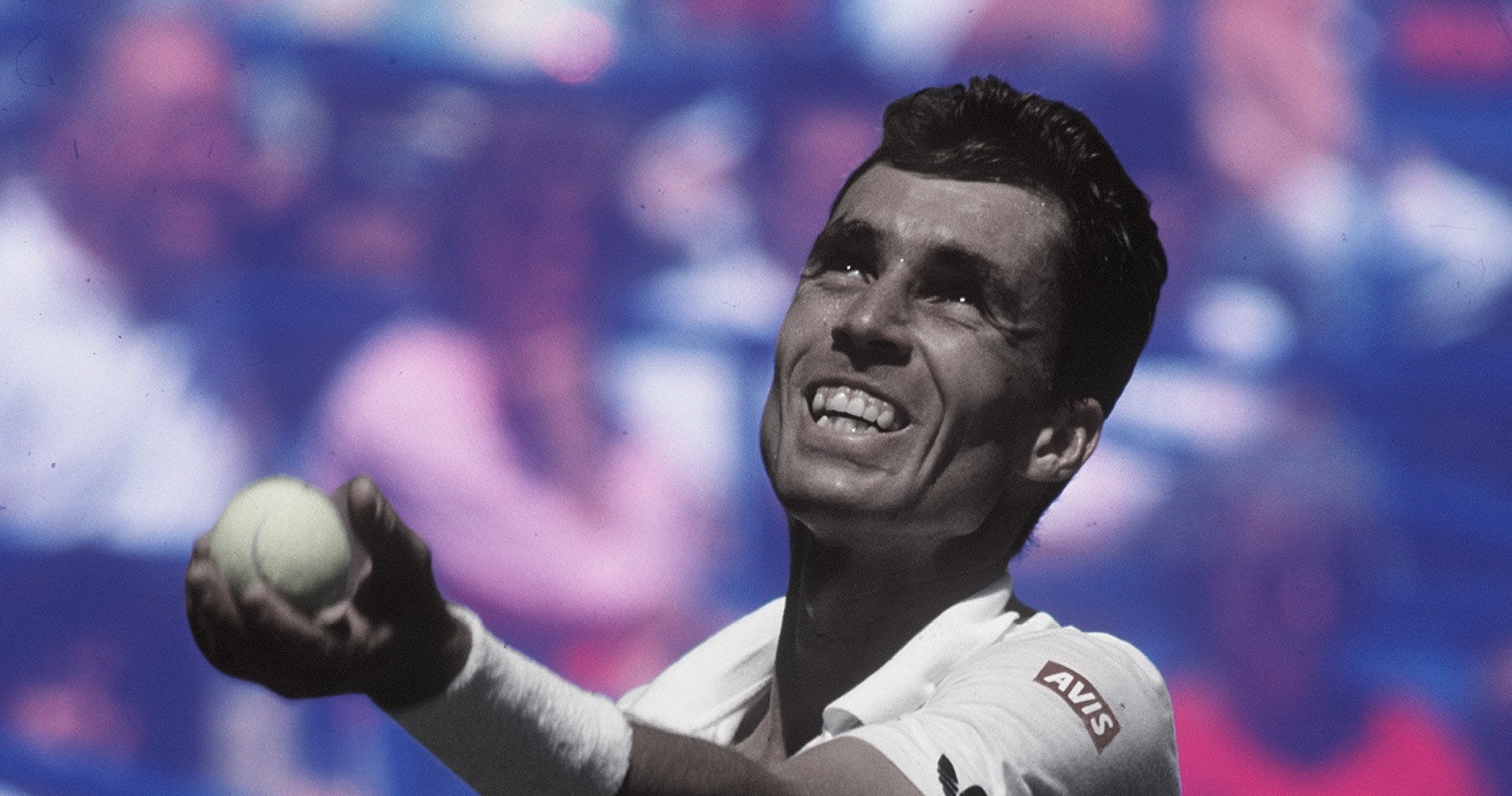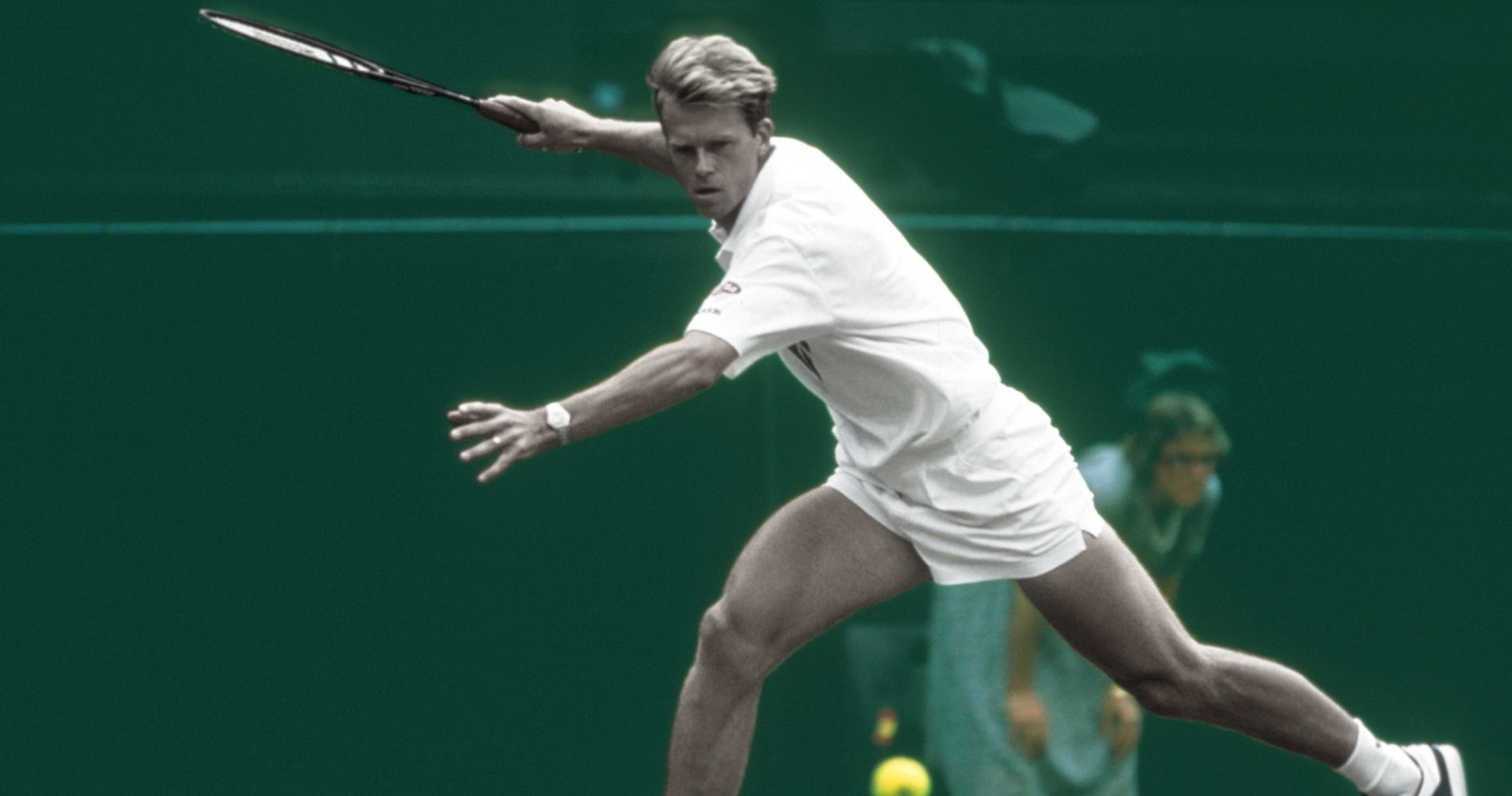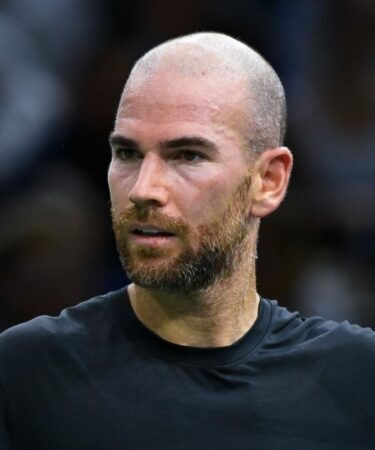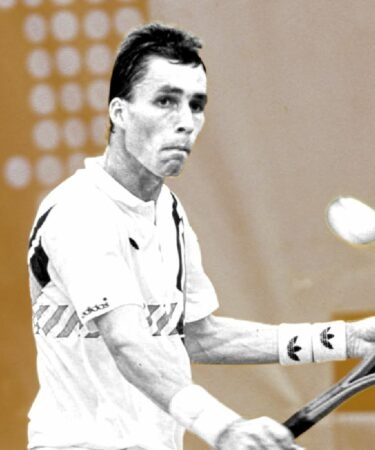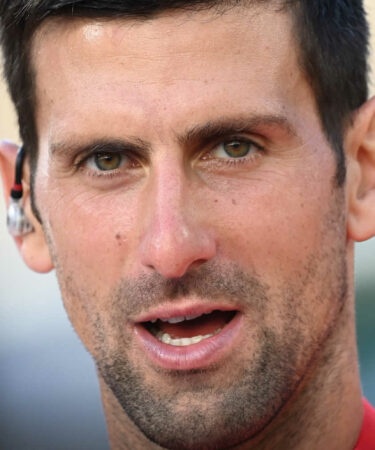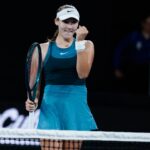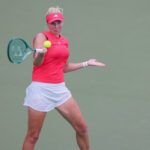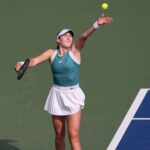Triple-bagels still incredibly hard to come by at Grand Slams
Novak Djokovic led Adrian Mannarino 6-0, 6-0, 1-0 but could not become the sixth man to achieve it in the Open era
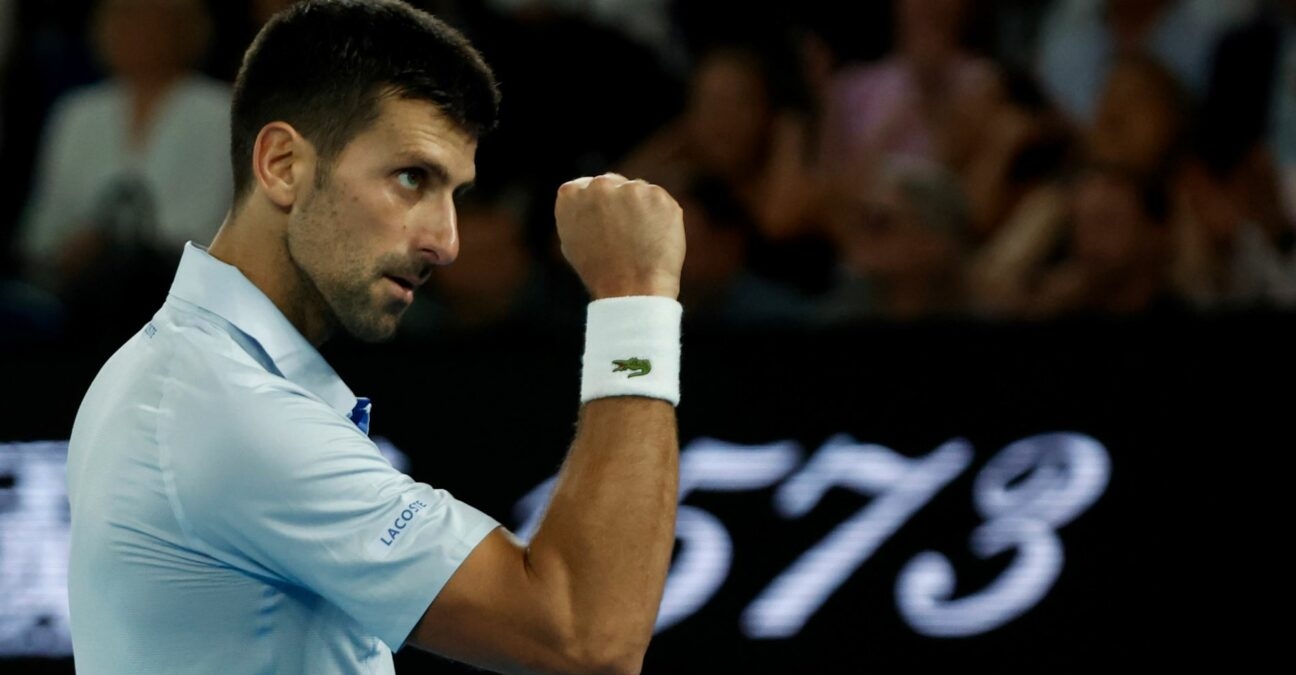 Zuma / Panoramic
Zuma / Panoramic
In the history of Grand Slam tennis in the Open era, there have been just five triple-bagels – or 6-0, 6-0, 6-0 wins – and the most recent one was more than 30 years ago.
There was almost a sixth on Sunday, when Novak Djokovic led Adrian Mannarino 6-0, 6-0, 1-0 before the Frenchman finally got on the board and saved his pride.
After his 6-0, 6-0, 6-3 win over the 35-year-old Mannarino, his best performance of this year’s Australian Open to date, Djokovic said he was glad he had dropped a game early in that third set.
“I really wanted to lose that game in the third set because the tension was building up in the stadium,” Djokovic said on court. “I just needed to get that one out of the way so I could refocus on what I need to do to close out the match. I played great from the first to the last point.”
There has never been a triple bagel at the Australian Open. In fact, there have only ever been five in all at the slams and the last of those was 31 years ago.
List of triple bagels at Grand Slams
- 1968 Nikola Špear – Daniel Contet 6–0, 6–0, 6–0 (French Open)
- 1987 Karel Nováček – Eduardo Bengoechea 6–0, 6–0, 6–0 (French Open)
- 1987 Stefan Edberg – Stefan Eriksson 6–0, 6–0, 6–0 (Wimbledon)
- 1987 Ivan Lendl – Barry Moir 6-0, 6-0, 6-0 (US Open)
- 1993 Sergi Bruguera – Thierry Champion 6-0, 6-0, 6-0 (French Open)
It is interesting that three of the triple bagels came on clay at the French Open, though perhaps not surprising, given what’s required to even get near one. You need a combination of factors; one player better than the other in every department, one fresher than the other, one vastly better on a surface than another. Clay, in particular, can show up the differences between players.
Why Djokovic came so close
On Sunday, the necessary ingredients were there. Djokovic had come through a cold and was feeling better; he’s a 10-time champion at Melbourne Park; Mannarino had played three straight five-set matches to reach the last four; the roof was closed to eliminate any issues of sun, heat or wind, and in their four previous meetings, he’d only dropped one set and that was in 2018.
Mannarino had nothing left, nothing to hurt Djokovic with anyway and really no chance, especially with Djokovic in the mood to get things done quickly, having struggled a little on his way to the fourth round.
“I don’t think I’ve been too many times in situations like this one today where I won 6-Love, 6-Love,” he said. “I think one of my first Roland Garros main draw appearances, maybe the first one where I qualified, and played Robby Ginepri, I remember I was 6-Love, 6-Love, 3-Love.
“The tension in the third set, it was so big, whether he’s going to win a game or not. Crowd wanted him to win a game and be in the match. I almost felt like it’s good to give away the game, just to be able to reset and refocus because the tension is growing as more the match progresses without him winning a game.
“I think, of course, it’s tough for him, but also for me to be able to kind of not think about that, not think about the triple bagel. So, yeah, I was happy that got that out of the way, 1-All third set, then kind of focused on what I need to do to close out the match.”
Three of the five triple bagels came in round one, Novacek and Bruguera achieved theirs in round two. And though Nikola Spear actually lost his next match in 1968, the rest all did well. Novacek made the quarters in Paris in 1987; Edberg reached the semis at Wimbledon the month after and Lendl, at the 1987 US Open, and Bruguera, at the 1993 US Open, both won the title.
